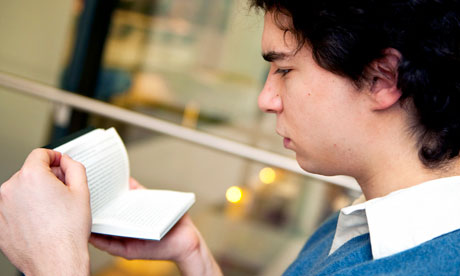 A new paperback format?
A new paperback format?
The "flipback" book, introduced in the Netherlands in 2009 and "all the rage" there, is being touted as the "new Kindle," smaller and lighter than an e-reader but made out of paper, according to the Guardian.
Flipback books are printed on extra-thin paper; the spine stays open easily; text is printed "parallel" to the spine so one reads the book longways; and the whole thing is small enough to fit in a pocket.
Hodder & Stoughton is publishing a series of 12 flipbacks in June that will cost £9.99 each.
---
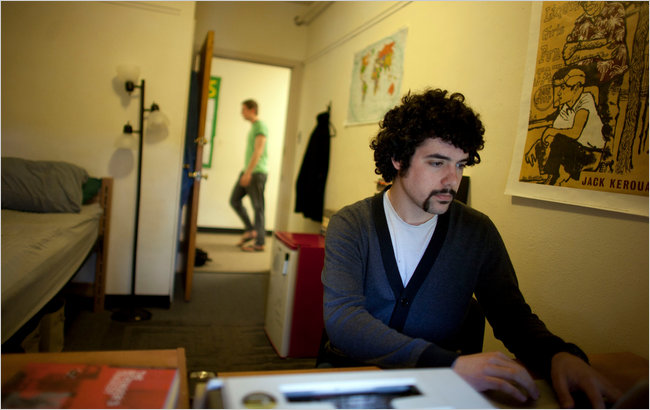 The New York Times has an amusing account of the $30,000 "not the J.D. Salinger scholarship" in creative writing for freshmen at Ursinus College, Collegeville, Pa., where the late reclusive writer spent a semester in 1938. (When the J.D. Salinger Scholarship was announced in 2006, the writer's representatives objected to the college's use of his name.) Besides the money, a key attraction of the scholarship is that the recipient spends his or her first year in Salinger's old dorm room--a concept his lawyers couldn't block.
The New York Times has an amusing account of the $30,000 "not the J.D. Salinger scholarship" in creative writing for freshmen at Ursinus College, Collegeville, Pa., where the late reclusive writer spent a semester in 1938. (When the J.D. Salinger Scholarship was announced in 2006, the writer's representatives objected to the college's use of his name.) Besides the money, a key attraction of the scholarship is that the recipient spends his or her first year in Salinger's old dorm room--a concept his lawyers couldn't block.
Some previous scholarship winners describe the room as small but expressed satisfaction at living in a room of such literary heritage. And one male student said cheerfully, "Girls are interested in seeing the inside of Salinger's room."
Some applicants admit that they haven't read Salinger, and even some scholarship winners would, if given the choice, rather sleep in rooms earlier occupied by, say, Dave Eggers, Cormac McCarthy or Bret Easton Ellis.
---
Several newspapers around the country looked at how independent bookstores are faring in the wake of the Borders Group bankruptcy and online and digital book competition:
In Colorado, local shops "sell intimacy as well as books," the Daily Camera
reported in its profile of indie booksellers who "say they're surviving
because of long-term, personal relationships. Loyal, regular customers
continue to support their favorite local stores and booksellers are
returning the favor, by supporting the local community."
Barbara Butterworth, owner of the Book Cellar, Louisville, said, "We're all about the personal and making it a personal experience for our customers."
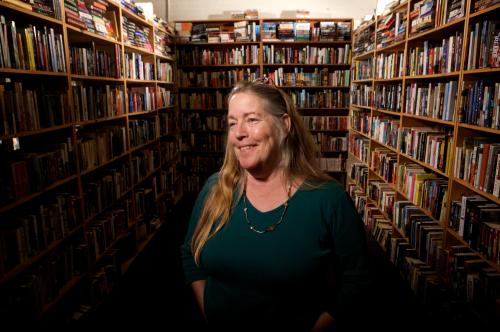 Kathe Heinecken, owner of Barbed Wire Books,
Longmont, agreed: "I try and make my bookstore a venue for all local
events, books and objects. People are very loyal to their stores and
because of this, I'm able to do things outside of used books."
Kathe Heinecken, owner of Barbed Wire Books,
Longmont, agreed: "I try and make my bookstore a venue for all local
events, books and objects. People are very loyal to their stores and
because of this, I'm able to do things outside of used books."
Indie bookstores "have the potential to really step up and become a community center," added Becky Hancock, owner of Calico Books, Broomfield.
"There will always be a place for independent bookstores," predicted Jon Murray, who has owned Red Letter Second Hand Books,
Boulder, for 25 years. "There will always be a place for independent
bookstores," he says. "The independent bookstore will always be around
because it's a place to go and see something you wouldn't see and
couldn't imagine; you see things here that you never knew existed."
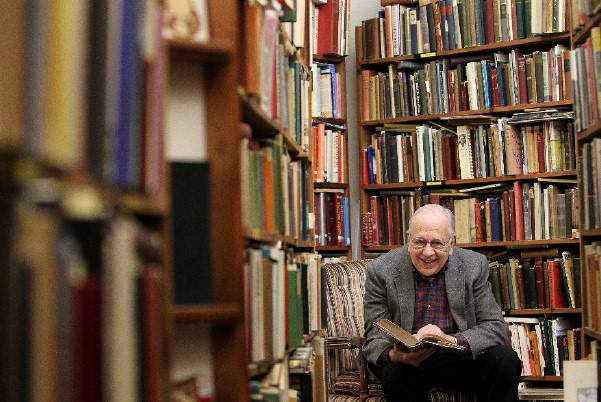 John Westerberg, owner of Yankee Peddler Bookshop in Rochester, N.Y., which recently celebrated its 40th anniversary, told the Rochester Democrat and Chronicle that his store appeals to people who have an affection for the printed word and an emotional attachment to books. "They're the kind of people who give a little pat to their books now and then," he said. "It's part of the romance of life. Do we want to get rid of that altogether? Can we live strictly electronically? I don't think so."
John Westerberg, owner of Yankee Peddler Bookshop in Rochester, N.Y., which recently celebrated its 40th anniversary, told the Rochester Democrat and Chronicle that his store appeals to people who have an affection for the printed word and an emotional attachment to books. "They're the kind of people who give a little pat to their books now and then," he said. "It's part of the romance of life. Do we want to get rid of that altogether? Can we live strictly electronically? I don't think so."
Lift Bridge Books in Brockport has felt competition from online retailers and e-books and is considering "setting up a space in the store where shoppers can access books for their e-readers," the paper said.
And the Star-Ledger looked at northern New Jersey bookstores (and features a large photograph of one of our favorite booksellers, Margot Sage-EL, owner of Watchung Booksellers in Montclair).
Sage-EL called e-books a big threat. "We have third graders asking parents for Kindle," she said. "And nobody turns down their kids for books." Still she noted that many customers who order books from the store online like to pick up their books in person. Sales were shaky a year ago but then picked up and have been "holding steady."
Alex Dawson, co-owner of the Raconteur in Metuchen, literally takes a showman's approach to bookselling, telling the Star-Ledger, "I like to indulge my impresario proclivities." His store has hosted "circus sideshow performers, arm-wrestling and beard-growing tournaments, jazz groups from Paris, radio serials and more--all free of charge," the paper noted.
---
Cool idea of the day: to celebrate National Library Week (April 11-16) Printed Page Bookshop, Denver, Colo., will give a free book to anyone who shows a library card. The store's 15 specialty dealers have all contributed books to the cause.
---
Book trailer of the day: What You See in the Dark by Manuel Muñoz (Algonquin). [Editor's note: you might want to see this in daylight since it's inspired by the storyboards for Psycho.]
---
Dara La Porte is leaving Politics and Prose in Washington D.C., where she has been manager of the children's and teens department for more than 11 years, to co-direct Literacy & Prose, a nonprofit she founded with Heidi Powell (also at P&P) to bring authors and illustrators into Title I schools and provide the students with signed books to take home. La Porte is a member of the ABA's Bookseller Advisory Council and NAIBA's children's programming committee, is a former treasurer of the Association of Booksellers for Children and is a member of the ABA/ABC transition committee. She may be reached at dlaporte@literacyandprose.org.
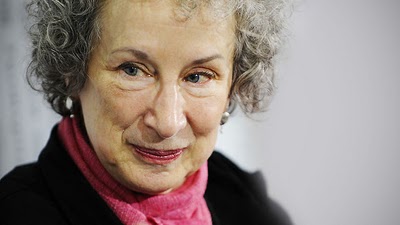 "When people say publishing is a business--actually it's not quite a business. It's part gambling and part arts and crafts, with a business component. It's not like any other business, and that's why when standard businessmen go into publishing and think, 'Right, I'm going to clean this up, rationalize it and make it work like a real business,' two years later you find they're bald because they've torn out all their hair. And then you say to them, 'It's not like selling beer. It's not like selling a case of this and a case of that and doing a campaign that works for all of the beer.' You're selling one book--not even one author any more. Those days are gone, when you sold, let's say, 'Graham Greene' almost like a brand. You're selling one book, and each copy of that book has to be bought by one reader and each reading of that book is by one unique individual. It's very specific."
"When people say publishing is a business--actually it's not quite a business. It's part gambling and part arts and crafts, with a business component. It's not like any other business, and that's why when standard businessmen go into publishing and think, 'Right, I'm going to clean this up, rationalize it and make it work like a real business,' two years later you find they're bald because they've torn out all their hair. And then you say to them, 'It's not like selling beer. It's not like selling a case of this and a case of that and doing a campaign that works for all of the beer.' You're selling one book--not even one author any more. Those days are gone, when you sold, let's say, 'Graham Greene' almost like a brand. You're selling one book, and each copy of that book has to be bought by one reader and each reading of that book is by one unique individual. It's very specific."









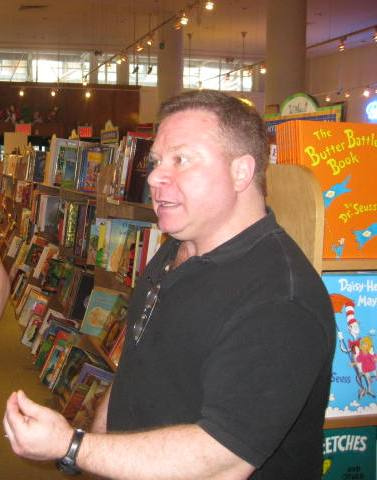 I saw several posts online heralding that e-books had outsold mass market paperbacks and hardcovers, but that isn't true. If you add the adult, university press and children's/YA hardcovers together, they exceed e-books by more 20%--and that's not taking into account whatever portion of the nearly $100 million in religious and professional books sold were hardcovers. And if you add the four paperback segments together (adult trade, adult mass market, university press and all children's/YA) and compare it to e-books, you discover that paperback sales exceed e-book sales by a whopping 220%. Again, that doesn't include religious or professional paperback books.
I saw several posts online heralding that e-books had outsold mass market paperbacks and hardcovers, but that isn't true. If you add the adult, university press and children's/YA hardcovers together, they exceed e-books by more 20%--and that's not taking into account whatever portion of the nearly $100 million in religious and professional books sold were hardcovers. And if you add the four paperback segments together (adult trade, adult mass market, university press and all children's/YA) and compare it to e-books, you discover that paperback sales exceed e-book sales by a whopping 220%. Again, that doesn't include religious or professional paperback books.
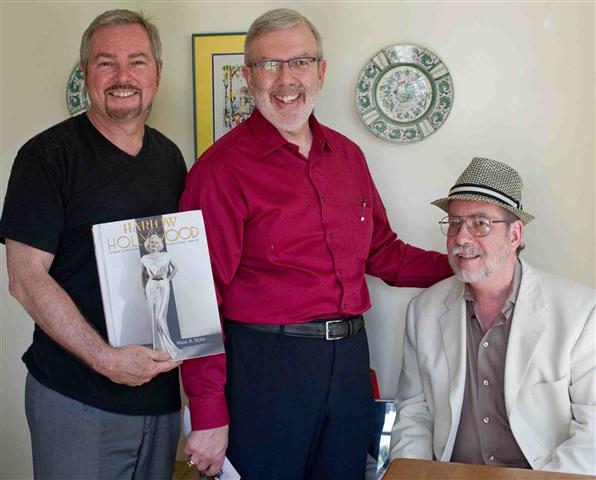

 A new paperback format?
A new paperback format? The
The  Kathe Heinecken, owner of
Kathe Heinecken, owner of  John Westerberg, owner of
John Westerberg, owner of  Warner Bros. offered a sneak peek at Harry Potter and the Deathly Hallows Part 2, "with a teaser trailer and the franchise's stars talking about the series climax,"
Warner Bros. offered a sneak peek at Harry Potter and the Deathly Hallows Part 2, "with a teaser trailer and the franchise's stars talking about the series climax,"  Diary of a Wimpy Kid: Rodrick Rules, based on the book by Jeff Kinney (Amulet Books, $13.95, 9780810994737), opens this Friday, March 25. Zachary Gordon stars as the title character from this powerful children's series.
Diary of a Wimpy Kid: Rodrick Rules, based on the book by Jeff Kinney (Amulet Books, $13.95, 9780810994737), opens this Friday, March 25. Zachary Gordon stars as the title character from this powerful children's series. Miral, based on the novel by Rula Jebreal, opens March 25. Freida Pinto stars as a Palestinian girl orphaned after the 1948 Arab-Israeli war. Also includes Willem Dafoe, Alexander Siddig and Omar Metwally. Penguin published the movie tie-in edition ($15, 9780143116196).
Miral, based on the novel by Rula Jebreal, opens March 25. Freida Pinto stars as a Palestinian girl orphaned after the 1948 Arab-Israeli war. Also includes Willem Dafoe, Alexander Siddig and Omar Metwally. Penguin published the movie tie-in edition ($15, 9780143116196).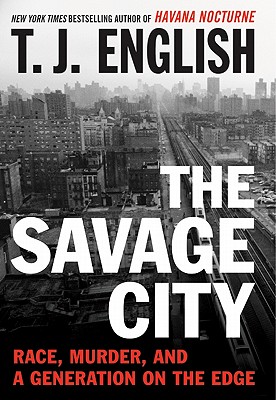 Two events frame this hard-hitting history of a decade that boosters of New York City would rather forget: the brutal killings of Janice Wylie and Emily Hoffert on August 28, 1963 (later dubbed by the tabloid press as "The Career Girls Murders"), and the December 1972 release of the final report of the Knapp Commission on police corruption in New York City. "From the time of the Career Girls Murders, the city had descended into a kind of urban madness; a tidal wave of injustice and insurrection, ambushes and assassinations, led some to believe that the city could not be saved," writes T.J. English (Harlem Nocturne), and he illustrates his claims of racism and police corruption through the experiences of George Whitmore, Dhoruba Bin Wahad and Bill Phillips.
Two events frame this hard-hitting history of a decade that boosters of New York City would rather forget: the brutal killings of Janice Wylie and Emily Hoffert on August 28, 1963 (later dubbed by the tabloid press as "The Career Girls Murders"), and the December 1972 release of the final report of the Knapp Commission on police corruption in New York City. "From the time of the Career Girls Murders, the city had descended into a kind of urban madness; a tidal wave of injustice and insurrection, ambushes and assassinations, led some to believe that the city could not be saved," writes T.J. English (Harlem Nocturne), and he illustrates his claims of racism and police corruption through the experiences of George Whitmore, Dhoruba Bin Wahad and Bill Phillips.